TABLE OF CONTENTS
Are you allergic to cannabis? Cannabis has been used for medicinal and recreational purposes for five millennia, but only recent scientific research has uncovered that cannabis is an allergen that can cause pollen-like allergic reactions. Of those allergy symptoms, red eyes, a runny nose, and sneezing are the most common, but more serious allergic reactions can occur.
For medicinal users, however, a cannabis allergy can affect their current marijuana-based treatment or prevent them from continuing their treatment. Before you worry and self-diagnose yourself with a cannabis allergy, keep reading to learn more about cannabis allergy symptoms, risk factors, cross-reactivity, diagnosis, prevention, and treatment.
Cannabis Allergy Symptoms
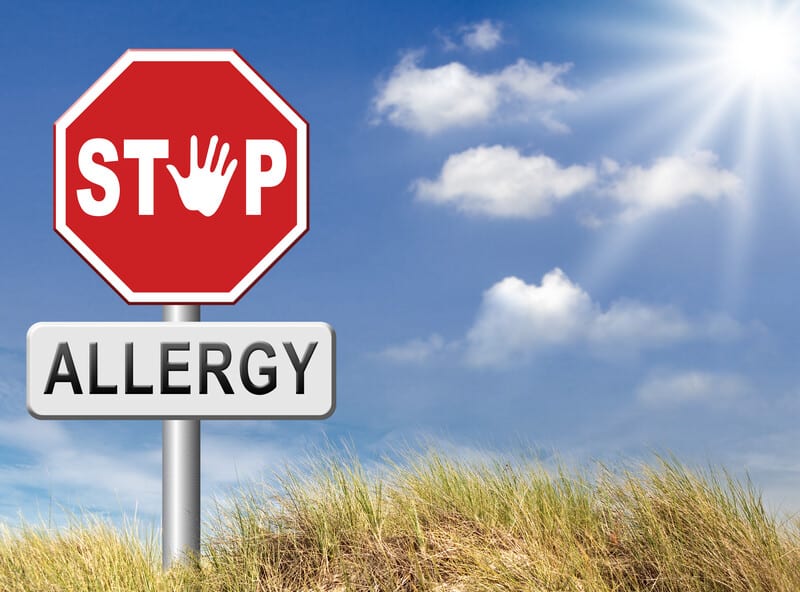
Cannabis allergies have become an increasingly common phenomenon, but we still don’t know much about how they develop in the body. Despite marijuana’s anti-inflammatory characteristics when inhaled, smoking the plant can trigger many symptoms related to pollen allergies including:
- Hay fever
- Red, itchy, and watery eyes
- Asthma
- Congestion
- Runny nose
- Nausea and vomiting
- Anaphylaxis
Inhaling cannabis isn’t the only triggering event for an allergic reaction. If you come in physical contact with marijuana through personal handling or occupational exposure, you can experience a form of eczema called contact urticaria. Contact urticaria is characterized by a non-contagious red, itchy, and swollen rash after contact with an irritant. Other common allergic reactions to marijuana include dry skin and hives.
Anaphylactic shock, a life-threatening condition that causes your blood pressure to drop and airways to narrow, has been reported with hemp seed ingestion, which can be found in a variety of foods and dietary supplements.
Lipid Transfer Proteins
Lipid transfer proteins (LTPs) are suspected to be one of the causes of cannabis allergies. LTPs are allergens found in vegetables, fruits, nuts, pollen, and latex. When sensitized to LTPs, individuals can experience severe allergic reactions. A March 2019 study found that 80 percent of cannabis allergy patients exposed to hemp extract containing a non-specific LTP (Can s 3) were sensitive to the protein.
Cross-Reactivity
You have an increased chance of developing a cannabis allergy is you have an allergic reaction to foods that have similar protein characteristics to cannabis. This allergic cross-reaction is more pronounced in foods such as tomatoes, peaches, grapefruit, almonds, chestnuts, eggplant, and banana.
Sensitization to Marijuana
After multiple and frequent encounters with cannabis, you are more likely to develop an allergy to the plant. Growers and trimmers can become sensitized to cannabis pollen that is buoyant enough to travel across many miles. Hemp seed sensitization can be more difficult to keep track of since it’s found in many foods and drinks. Essentially, cannabis sensitization can occur over time if you smoke, vape, touch, or eat cannabis.
THC Content
Delta-9-tetrahydrocannabinol (THC), is one of the most popular cannabinoids found in the cannabis plant. This chemical compound is responsible for the pronounced psychotropic effects experienced after consuming cannabis.
Many cannabis plants are bred to produce as much THC as possible, which has been used for medicinal and recreational purposes. THC levels can reach up to 30 percent in high-potency strains. Although not proven, researchers believe that high levels of THC in cannabis play a role in developing a cannabis allergy.
Terpenes in Marijuana
Terpenes are the aromatic chemical compounds responsible for your strain’s unique smell. Unfortunately, they may also be at play when developing cannabis allergies. One 2010 study on the terpene linalool found that 5 to 7 percent of patients tested positive for linalool sensitivity when exposed to oxidized linalool patches on their skin. While not a significant cause for concern, terpenes may just be another piece of the allergy-causing puzzle.
Diagnosis of a Cannabis Allergy
Diagnosis of a cannabis allergy is generally performed via skin testing. A doctor may perform the skin test themselves or refer you to an allergist who will perform a skin prick test by pricking your arm or back with an extract of crushed flower buds, flowers, and leaves. The quality of material and extraction techniques can affect the test results. In addition, contaminants and additives can lead to a false-positive test.
A skin prick test may elicit an immediate allergic reaction to the cannabis such as swelling and itching. An allergic reaction can take anywhere from 10 to 20 minutes to develop.
An allergist may also perform an intradermal test if a skin prick test comes back negative. During the intradermal test, a doctor will inject a diluted cannabis extract under the surface of your skin to elicit an allergic reaction.
Prevention and Treatment
If you use cannabis and are diagnosed with a cannabis allergy, you may have to forgo cannabis use and handling to avoid an allergic reaction. All cannabis delivery methods such as consuming edibles or vaping a cannabis extract will cause a reaction if you have an allergy to cannabis. If you work directly with cannabis, you can use a face mask and gloves to reduce your exposure to marijuana.
No treatments exist to cure a cannabis allergy, but you can use certain over-the-counter medications to alleviate some symptoms. You can use antihistamines and nasal decongestants to relieve your nasal congestion, runny nose, sneezing, and red and itchy eyes. If asthma is part of your allergic reaction, an inhaler can improve your breathing after a triggering incident. In rare cases, immunotherapy has been used for hemp dust and fiber desensitization.
“
There are over 300,000 jobs in the cannabis industry. CTU trained me for one of them!

Makes $24.50 @ THC +
Cannabis allergies are still relatively rare allergic conditions. As cannabis use and cultivation become more prominent, we can expect to see an increase of sensitization to both cannabis and hemp plants. More research is needed to standardize skin prick tests for cannabis and come up with treatment options for patients with cannabis allergies. Until then, be mindful of how cannabis affects your body and consult a physician if you believe you have a cannabis allergy.
Marijuana Medical College
To learn more about marijuana as medicine enroll at the leading medical marijuana training online. Hear much more about cannabis as a medicine from the industry leading programs. Enroll today and save big at the Cannabis Training University.

Fred Hernandez
Fred Hernandez is a highly accomplished and versatile writer, boasting an extensive background in the cannabis industry. With an in-depth understanding of various sectors including cultivators, processors, retailers, and brands, Fred's expertise spans across the entire cannabis landscape. As a prominent contributor to CTU, he consistently delivers insightful articles exploring the latest developments, news, and regulations shaping the cannabis industry. Whether it's delving into the intricacies of cannabis products, cannabis strain reviews, or providing comprehensive analyses of cannabis laws, or sharing expert insights on cannabis cultivation techniques, Fred's wealth of knowledge positions him as an invaluable writer and educator for all cannabis-related subjects.


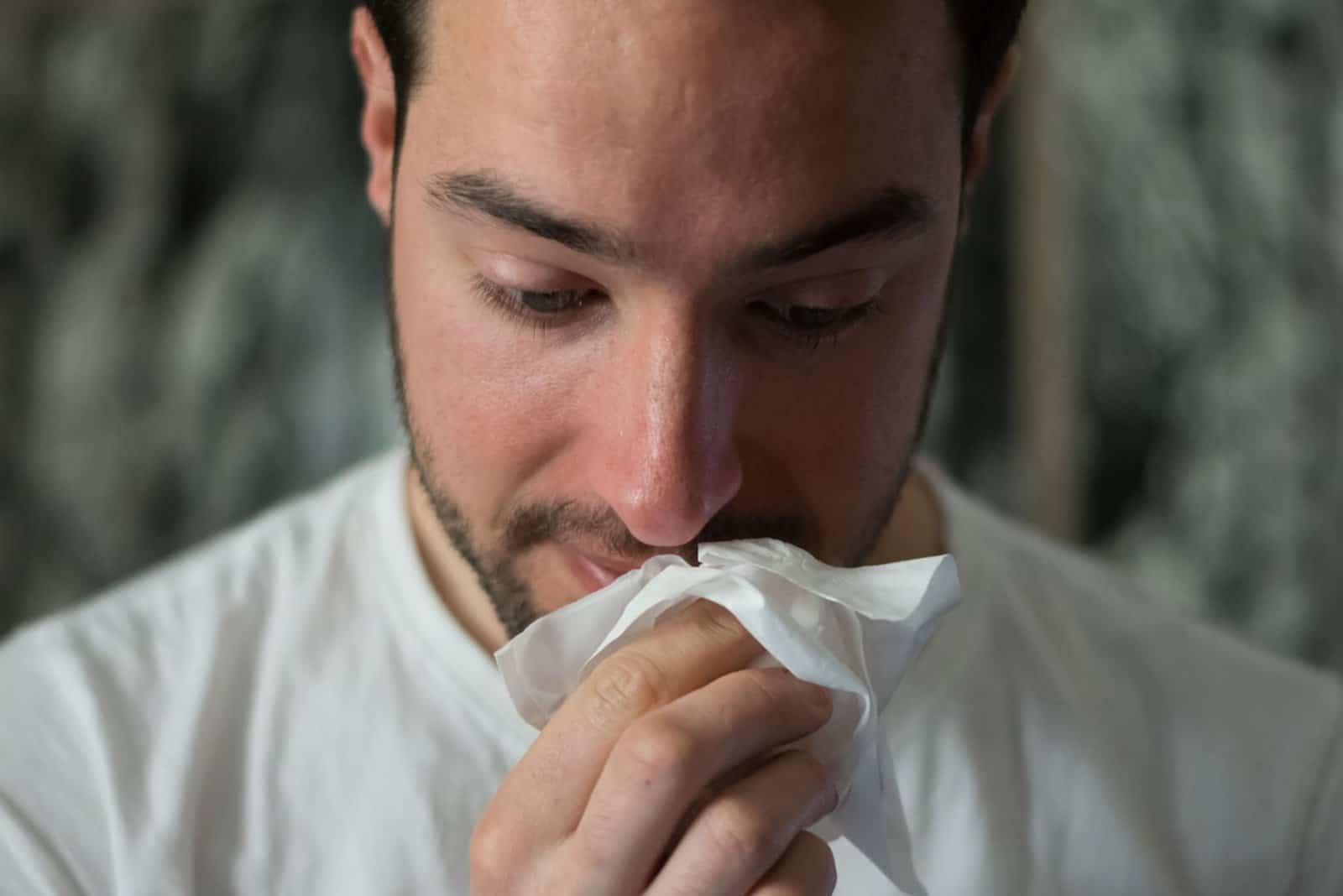




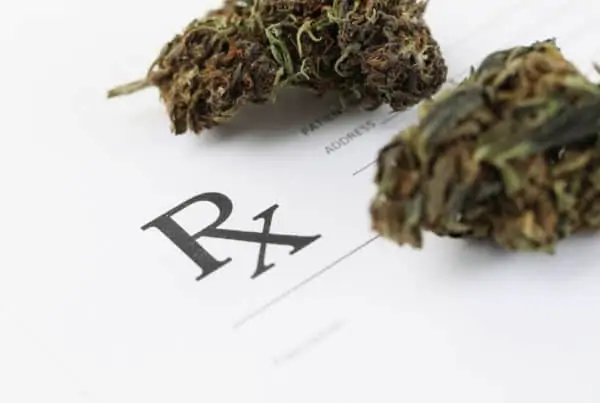
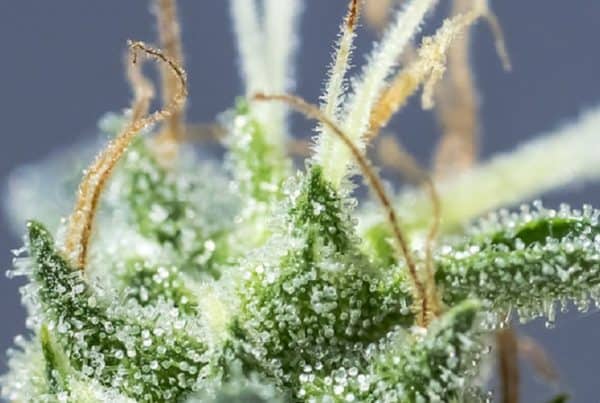

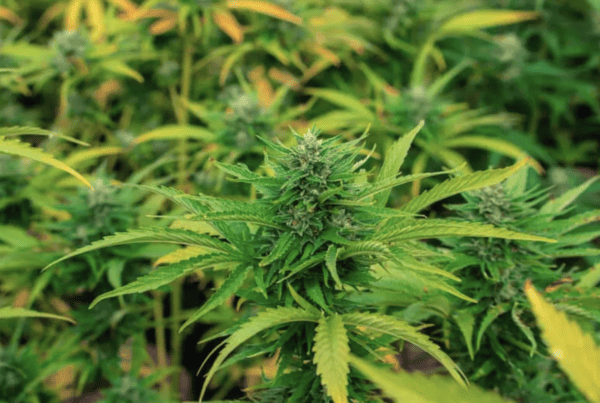

 Jeff was involved in an accident where he endured a traumatic brain injury. He had a week-long stay in ICU where brain surgeons
Jeff was involved in an accident where he endured a traumatic brain injury. He had a week-long stay in ICU where brain surgeons  100% risk free money back guarantee within 48 hours after purchase if student has not completed any of the courses or exams.
100% risk free money back guarantee within 48 hours after purchase if student has not completed any of the courses or exams.